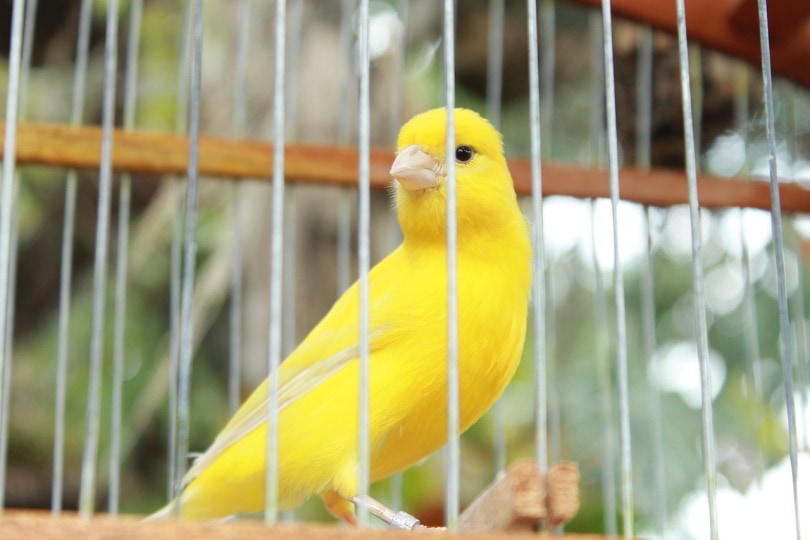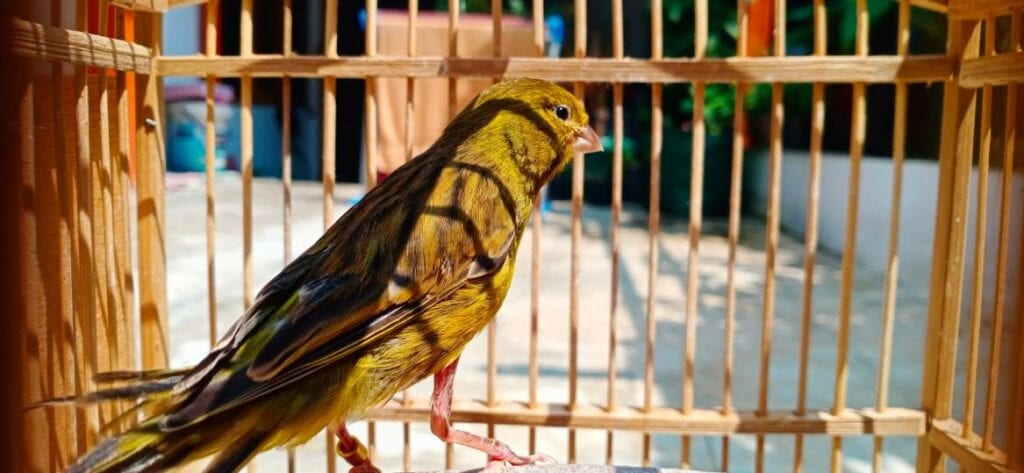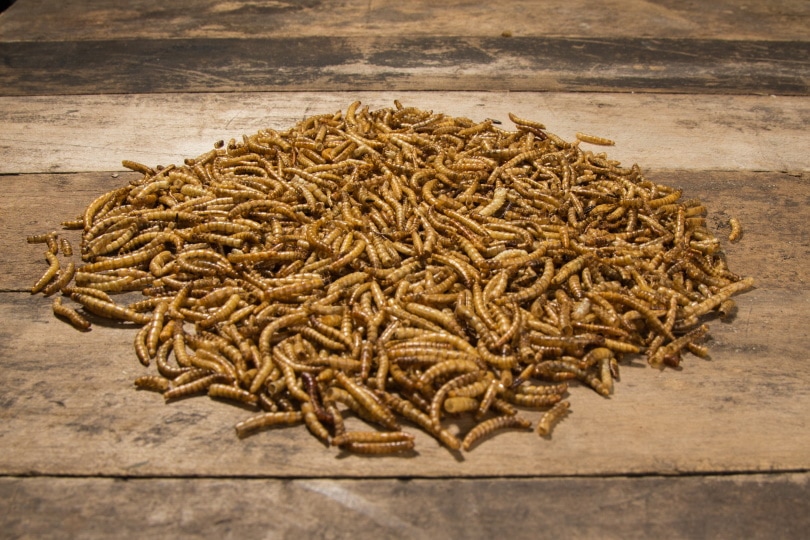
Canaries are native to the Macaronesian Islands, including the Canary Islands (which they’re named after). Wild Canaries (also known as Atlantic Canaries) are granivores in their natural habitat, meaning they eat mainly seeds and cereals.
Both wild and captive canaries can have more of a varied diet; wild canaries will often eat insects, vegetation, fruits, and berries as the bulk of their diet if seeds aren’t available. They will eat various seeds, including grass seeds, supplemented with other nutritious foods. Canaries feed in flocks in the wild, and the seeds they eat are dictated by what’s available and in season. In addition, they’ll eat fruit such as figs that are common in the area and forage on the ground for vegetation. A Canary’s diet is as wild and varied as they are!
What Do Canaries Eat as Pets?
Captive Canary diets often try to mimic what they’d eat in the wild. However, the best diet for a captive Canary is pelleted food, which is fully balanced. They are nutritious and contain all the protein, vitamins, minerals, fat, and fiber that a Canary needs to thrive.
Pellets should make up around 75–80% of their total diet. However, many caged birds are fed on seed mixes. While the birds enjoy seeds, pelleted food is the best option for Canaries in captivity. The rest of a captive Canary’s diet should consist of 20%–25% fruit and vegetables. Grapes, apples, papaya, celery, spinach, and kale are all healthy additions to the bird’s diet.

Does My Pet Canary Need Supplements?
Vitamin and mineral supplementation depends on a Canary’s diet. The best thing to do is consult your vet on your bird’s specific nutritional needs, as some Canaries might need different supplements at different life stages or during periods of illness or food transition.
Pellet food is nutritionally complete, but seed-based mixes often need additional supplementation. A diet mainly consisting of seeds lacks key vitamins and minerals imperative to the Canary’s health.
Canaries at different life stages might also need additional supplements to help support them. For example, egg-laying birds need calcium, so your vet might decide on a supplement for them during this time.
If you and your vet decide that your Canary needs a supplement, putting them on moist foods is ideal. Several bird supplements come in powder form; if your Canary eats seeds, it will benefit less from the supplement if it’s sprinkled on top as they de-shell seeds before eating. Remember that supplements should only ever be given under veterinary guidance.
Can I Give My Canary Treats?
Canaries can have human food for a treat, as long as it’s healthy and cooked properly. Proteins, such as chicken and eggs, are especially good for them. Cheese is also a healthy option occasionally, but don’t give them too much dairy since they are lactose intolerant. Fruits and veggies are always a great idea, as long as you avoid those harmful to birds. Also, salty foods and those containing caffeine and alcohol should be avoided.

What Should You Not Feed Canaries?
Canaries shouldn’t eat certain foods since they are toxic to birds and can make them very sick. For example, you should never give your Canary the following foods:
Can Canaries Eat Mealworms?
Canaries can enjoy small insects as part of their diet. Small portions of mealworms and wax worms can be added as an occasional non-toxic, high-protein treat. Other live food like crickets can also be introduced to your Canary’s cage, but since Canaries can be timid, it can take a little while to get used to insects hopping around their cage! They might be a little scared at first.

Final Thoughts
Canaries in the wild often eat whatever they find that conforms to their granivore lifestyle and will supplement and adapt their diet if they must due to seasonal availability. In captivity, Canaries should be fed on a nutritionally balanced diet that mimics their wild variants as closely as possible. Pellet foods are an excellent option for owners wanting to ensure their Canary has the best diet possible, and they can be supplemented with fruit, vegetables, and healthy treats.
Featured Image Credit: rafarabassa92, Pixabay








